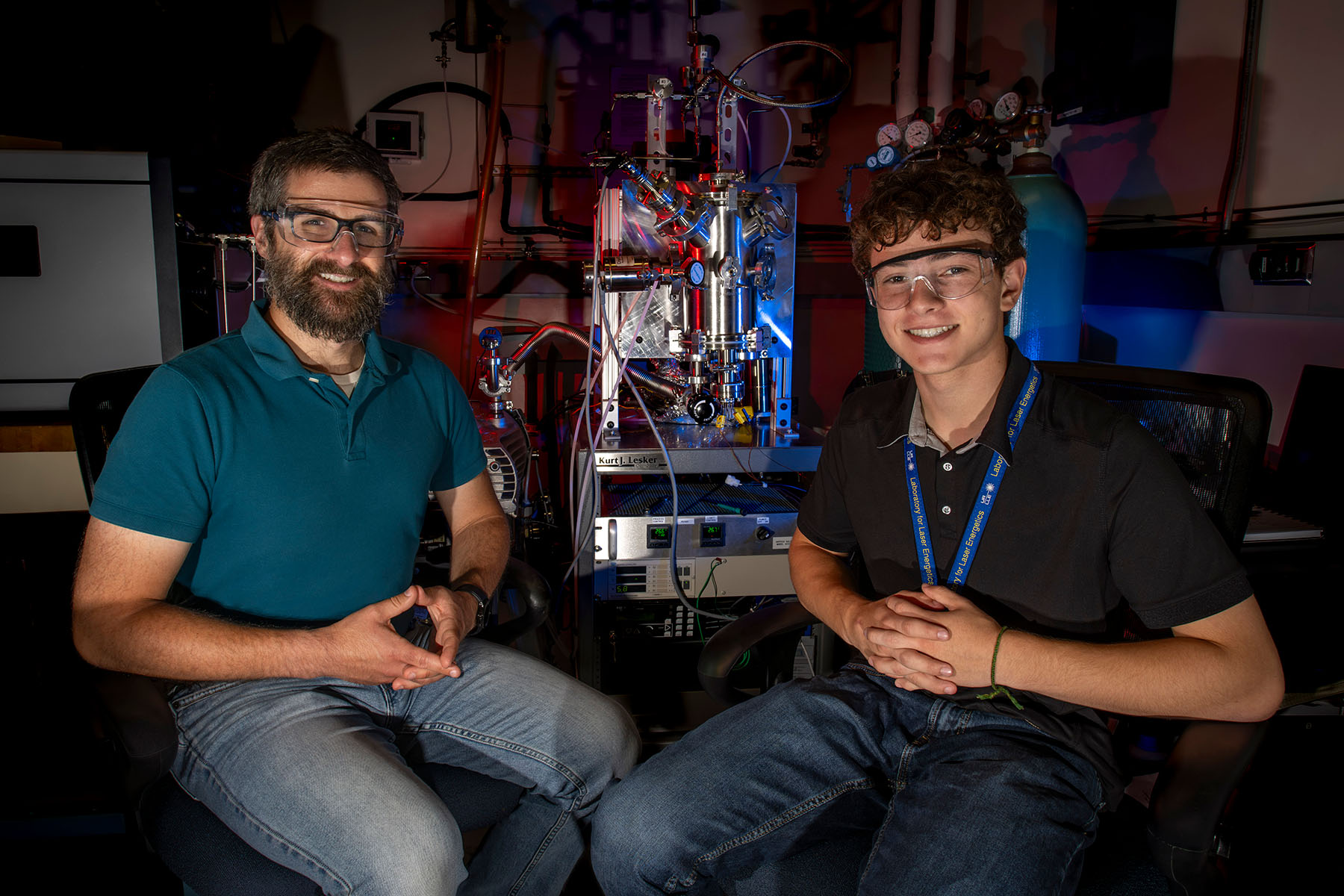Elevating Basic Science
Tritium, a rare and radioactive form of hydrogen, is a critical fuel in the pursuit of controlled nuclear fusion—the same process that powers the sun. Our advanced research in fusion fuel systems contributes directly to programs that safeguard US technological leadership and strengthen scientific foundations.
LLE’s tritium science facilities represent a unique platform to explore key questions in fusion physics and materials science. Our research transforms fundamental concepts into real-world systems that improve how tritium can be safely stored, handled, and measured. Through work in materials science, laboratory innovation, and engineering, LLE strengthens critical capabilities for tritium management while providing training opportunities for students.




